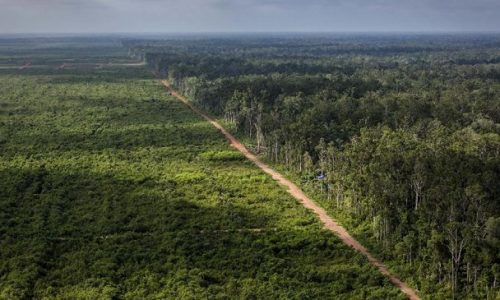Logistics is considered as a major problem in the country that needs synchronized collaboration between ministries and institutions through a separate agency, an observer said.
Chairman of Indonesian Security and Safety Association (ISSA), Kyatmaja Lookman, said there needs to be a special agency that handles logistical affairs in an integrated manner, so that this problem can be resolved effectively.
“So far, no one has really focused on managing logistical problems as a whole. Ministries and institutions cannot work alone in handling this problem,” Lookman spoke to Indonesia Business Post on Tuesday, October 15, 2024.
Lookman, who had studied the formation of a special logistics agency while attending courses at the National Resilience Institute (Lemhannas) emphasized that national logistical problems, including the management of commodities that has significant impact on governance that includes downstreaming and added value, need to be mapped out as a whole.
“Our main problem is because we are not synchronized. As long as the ministries and institutions are not in line, these logistical problems, including high logistical costs, will not be resolved,” he said.
According to a study conducted by Lemhannas, the establishment of a special logistics agency is considered crucial to overcome this problem. The ministries and institutions that are stakeholders include the Ministry of Transportation, Ministry of Trade, Ministry of Industry, Ministry of Public Works and Housing (PUPR), the Ministry of State-Owned Enterprises (SOEs), and the Customs and Excise.
Coordination is currently handled by the Coordinating Ministry for the Economy, which oversees several ministries, such as the Ministry of Industry and the Ministry of Trade.
However, the rigid hierarchy model coordination between the Coordinating Ministry for the Economy and other Coordinating Ministries, such as the Coordinating Ministry for Maritime Affairs and Investment, is considered an obstacle.
“When coordination is already in the Coordinating Ministry for the Economy, other Coordinating Ministries such as the Coordinating Ministry for Maritime Affairs and Investment can no longer perform a coordinating role. Our overly rigid hierarchy model makes it difficult for policies to be implemented. Therefore, the hierarchy model must be more flexible and not as rigid as it is now,” Lookman said.
“With a more flexible hierarchical model and good coordination, it is hoped that all stakeholders can synergize, so that complex national logistical problems can be resolved,” he concluded.









